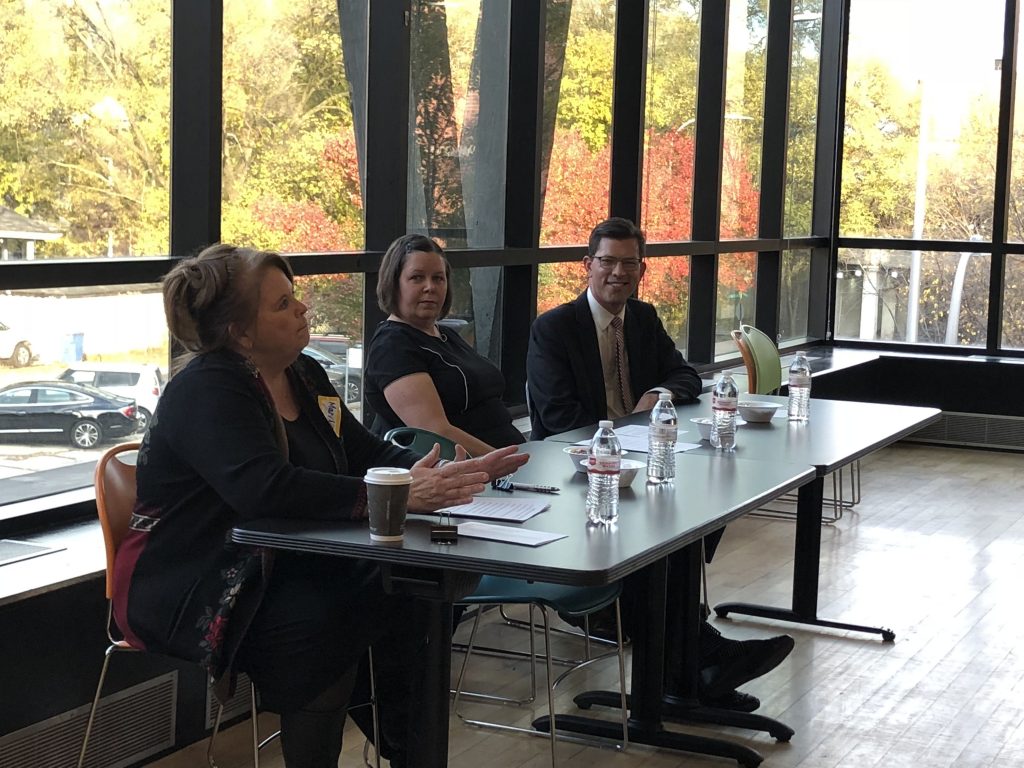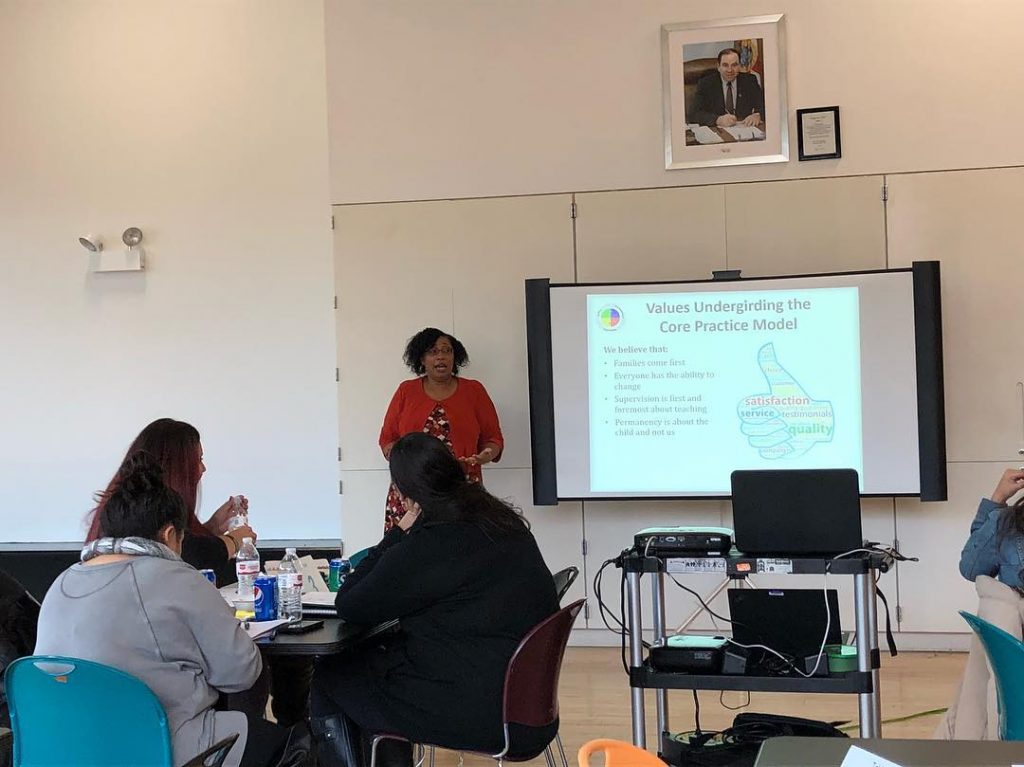The foster care system across the United States is taking great strides to reduce the length of time that children and teens spend in foster care. In Illinois, the Department of Children and Family Services (DCFS) has prioritized permanency – the state of a child or sibling group being placed with a forever home – for all foster care and child welfare agencies working with youth in care. This fall, we gathered with our Case Management and Operations team and our DCFS partners to share best practices, tips, and reflections on how to most effectively and compassionately accompany youth in their quest for permanency.

What is Permanency?
Permanency, or “permanency planning”, is a social work philosophy that promotes and advocates for a permanent living situation for every child entering the foster care system or for a child that is already in the foster care system. Permanency emphasizes three key practices;
- A child or sibling group is placed with at least one appropriate, able, willing adult who is either a biological parent, a biological relative, or an adoptive parent
- The child or sibling group has a continuous, reciprocal relationship with the adult or adults with whom they are placed
- The child or sibling group is placed with the appropriate adult or adults in the minimum amount of time possible, lessening the amount of time spent in the foster care system
For children and teens in foster care, successful permanence occurs when he/she has a lasting, nurturing legally secure relationship with at least one adult that is characterized by mutual commitment.

One Family Illinois Quest for Permanency Conference
On Friday, November 7, One Family Illinois Case Management, Operations, and Quality and Training staff gathered alongside supportive partners at the Chicago Village for the Quest for Permanency Conference. Facilitated by Karen Bartmann, Deputy Director of Operations, Clinical and Support Services, the full-day conference invited One Family Illinois staff to participate both as speakers and participants, allowing a wealth of diverse, tested strategies to be shared as best practices and tools of the trade. Topics of presentations included:
- Assessing Key Indicators: The Permanency Assessment’s Role in Timely Goal Achievement (Presented by a group of One Family Illinois Case Management and Quality and Training Staff)
- Recognizing Barriers to Success: Tips to Avoid Delays and Increase Permanency Achievement (Presented by Therese Thompson, One Family Illinois Permanency Specialist, in collaboration with Scott James, Adoption Specialist at DCFS)
- Working with LGBTQ Youth: Supporting Healthy Identity and a Path to Permanency (Presented by Juliana Harms, Associate Deputy Director, DCFS Division of Clinical Services)
- Supervision as a Driver for Permanency Achievement (Presented by Monico Whittington-Eskridge, Associate Deputy Director, DCFS Office of Learning & Professional Development)
During these activities, participants were invited to listen to compelling stories, learn best practices from the industry, and participate in group activities that helped them bond with their peers while taking away key learning objectives.
The Conference culminated in a panel discussion, “Advocacy and Developing Collaborative Relationships with Stakeholders”, moderated by One Family Illinois Deputy Director of Operations, Case Management Support, Delphine F. Rankin. Panelists for this important question and answer session included Jennifer Cleveland, Supervisory Regional Counsel, Office of Legal Services, DCFS; Marikay Jerit, Division of Monitoring, DCFS; and Jeffery Sterbenc, Assistant Public Guardian.
The panel allowed for participants to ask pressing questions and share commonalities about navigating the Illinois court system and building relationships with the many individuals’ case managers work alongside when seeking permanency for a youth in care. During the panel, Jerit applauded One Family Illinois on its commitment not only to finding permanency placements for sibling groups, but for paying special attention to placing teenagers in forever homes. Jerit remarked that, while teenagers often age out of the foster care system having never been adopted or reunited with a member of their biological family, One Family Illinois journies alongside each child and teen — no matter their age — in the pursuit of successful permanency. At the conclusion of the panel, One Family Illinois CEO, Tim McCormick, offered kind words of appreciation for all our expert speakers and offered special acknowledgment for the important and tireless work accomplished by our Case Management Team in our communal journey towards permanency.
How to Support One Family Illinois’ Quest for Permanency
Achieving permanency for youth in foster care is only made possible with your support. When transitioning into a permanent living situation, youth and families often have needs that must be met to create a comfortable, fulfilling living environment. Some of these needs include new weather-appropriate clothing, twin-sized beds with new mattresses, and unopened bed linens. To make a gift to support sibling groups moving into permanency, consider making a one-time or monthly gift. With your help, we can continue building forever families for youth in foster care.